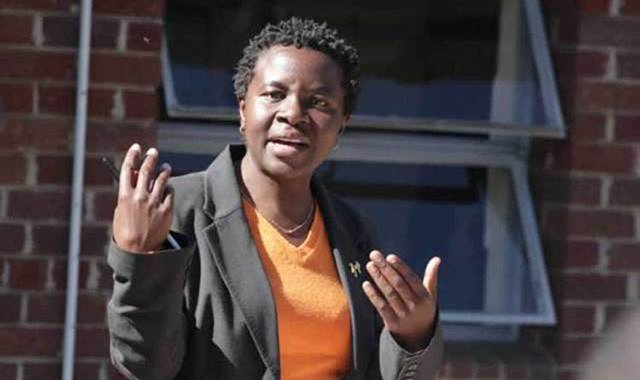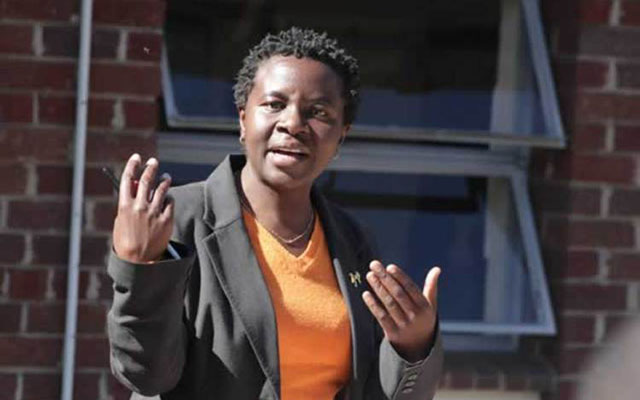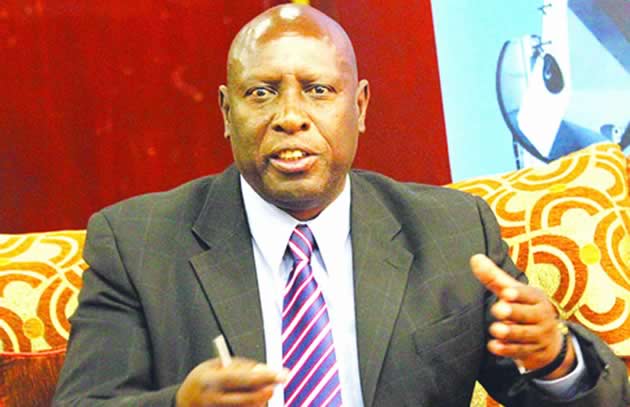Women can do better than ride on men’s grace


Jessie Majome
Joram Nyathi Spectrum
Election fever is in the air. Agendas are coming up. Political parties and individuals are staking their claims to what promises to be an exciting contest next year.
Now women want their share of power. But they are pitching it like it is a form of entitlement, which however must be extorted from men by brandishing the national Constitution.
Women constitute 52 percent of the population in Zimbabwe, but sit at only 22 percent in national politics. The Constitution provides for a 50-50 gender representation at all decision making levels. Yet in practice things are not so simple and women don’t appear to leverage their numerical advantage.
That is why their demand for equal representation in Parliament needs to be framed intelligently if they want to be treated as equals to their male counterparts. It would be a pity if it turns out that women want to be treated like an overgrown version of the “girl child” in public life while in the same breath claiming to be equal.
Worse, that doesn’t seem to be the best way to fight what they claim to be patriarchy that’s keeping them down.
Media reported last week that Member of Parliament for Harare West Jessie Majome had called for an amendment to the Electoral Act to reserve seats via constituency demarcations to women.
“This Parliament must ensure that before the next election, we change the Electoral Act to ensure that in delimitation, 105 seats are demarcated to women,” Honourable Majome pleaded in the National Assembly.
“We must move with speed and ensure that we effect necessary electoral reforms that make sure that for the 210 seats that are in this august House, at least 105 of them are occupied by women and 105 are occupied by men, because that is what the Constitution says.”
She is only partially right. The Constitution reads;
“The State must promote the full participation of women in all spheres of Zimbabwean society on the basis of equality with men;
“The State must take all measures, including legislative measures, needed to ensure that both genders are equally represented in all institutions and agencies of Government at every level; and,
“Women constitute at least half the membership of all commissions and other elective and appointed governmental bodies established by or under this Constitution or an Act of Parliament; and,
“The State and all institutions and agencies of Government at every level must take practical measures to ensure that women have access to the resources, including land, on the basis of equality with men.
“The State must take positive measures to rectify gender discrimination and imbalances resulting from past practices and policies.”
Let’s hear Honourable Majome speak again:
“What can be done in the Electoral Act is when the Delimitation Commission starts, it actually delimits , and we make provisions in the Electoral Act to indicate that there are certain seats we demarcate and delimit 105 seats to say these are for women.”
We are not sure if that’s what was contemplated in drafting the Constitution. We are also not sure whether “legislative measures” can broadly be interpreted to include delimiting constituencies for women without at the same time treating them as physically or mentally incapacitated in some way.
This is where women should be careful that they don’t demean themselves. They cannot keep their cake and it eat.
If the Constitution suggests that women should be treated as a special category of Zimbabweans or human beings while aspiring to be equal, then that’s where they should be demanding an urgent amendment.
We see nothing wrong in women claiming constitutional entitlement in “appointed positions” because it is either they have already proved themselves, or talent is not a determinant criterion for the post. The situation looks different when it comes to “elective positions”. The idea of election opens the position to democratic transparency and fair competition where talent, not gender, must prevail.
Once that is accepted, we must also accept that no constitution can legislate for merit or talent. All things being equal (they rarely are), which is what we all aspire to as society, we don’t want do “demarcate” examinations for our boys and girls.
The girl child must enjoy the pride of being able, talented, capable, equal, not a beneficiary of a benevolent society feeling pity for her being female.
Unfortunately, we read in Honourable Majome’s statement a plea that women are a special case. Worst of all, at national level where the aim should be to deploy our best brains because being a Member of Parliament should not be about making the numbers. It should not be about gender. It should go beyond form to substance, content.
Women have a chance to prove themselves at party level before they seek to parade themselves on the national stage to plead for special consideration because they are women.
Political parties are voluntary organisations; if party D doesn’t meet one’s expectations, one is free to move on and join party Z or to found their own.
No such luxury at national level. We cannot have in democracy laws which say a man cannot contest an election in a particular constituency where ordinarily he would qualify, merely because that constituency has been demarcated, designated or reserved for a woman — her sole qualification being that she was born female. The man disqualified for being born male.
A fine way to entrench gender discrimination. I think women can do better than that!
We earlier alluded to things rarely being equal or fair. The relevant Section 17 of the Constitution is illuminating and gender activists need to read it closely because it does address the practical side of this debate about women representation, that is Parliament. This is what we are referring to:
“The State must take positive measures to rectify gender discrimination and imbalances resulting from past practices and policies.”
Society, or the home environment in particular, tends to place a disproportionate burden on the girl child. That might explain the phenomenon where society appreciatively asserts that girls mature faster than boys.
It is because they are expected at an early age to run and manage the kitchen, regardless of whether the parents are there or not. Mentally, the girl is being prepared to be a mother and therefore, should know where all the tools of the kitchen are, and be able to cook.
While she is doing all this motherly work, nobody asks what the boy is doing. If he is a clever one, he is in the study room, advancing himself and expecting his twin sister to call him to supper once she is done cooking and the table laid. The boy is being prepared for a men’s world. The parents approve, and don’t see a role for him in the kitchen, nor the disadvantage at which they place the girl child, who would want to be a Jessie Majome tomorrow.
It is this form of “gender discrimination and imbalance” in the home and society which women should use the law to fight. Instead of which female MPs seem to want to leapfrog the girl from the kitchen on to the international stage, for that’s what an MP’s role in Parliament entails.
This “just because I am a woman” approach doesn’t work. It certainly would fall foul of the Constitution and can’t be a permanent cure for a disease nurtured in the home and society in general. I refuse to be politically-correct by being sympathetic to a poorly and badly founded argument.
Women have the Legal Age of Majority Act. They recently got supporting legislation against child marriage. The next stage is to equip the girl child mentally for the real world. By the looks of it, the impediments to the girl child’s advancement are no more so much in the law as in the home.
Let’s teach the girl child that she can walk on her own two feet to Parliament, not only by the grace of men. That way, we prepare her to win battles in company boardrooms without lifting her skirt.









Comments